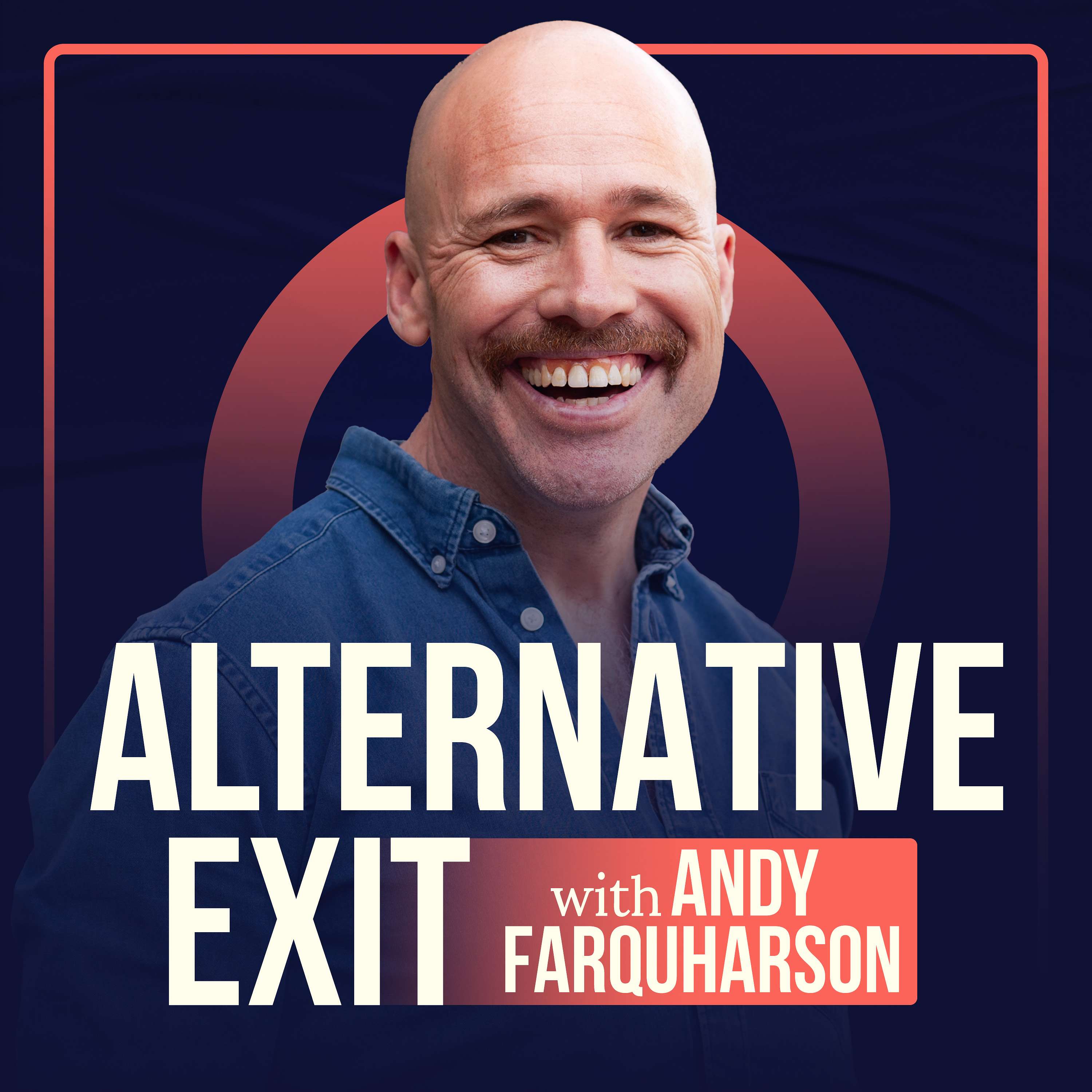Alternative Exit

Alternative Exit
Podcast Description
Alternative Exit is a dedicated to educating small business owners about the possibilities, benefits, and challenges of transitioning to an employee ownership model.There are over 200m SMEs with an owner who will be retiring in the next 10 years, many of which will never find a buyer for their business, forcing them to close their doors. There is an alternative. This show will explore various the different forms of employee ownership and best practices for successful transitions.Each episode features interviews with experts in employee ownership, business owners who have made the transition, and consultants who facilitate these changes.
Podcast Insights
Content Themes
The podcast covers a range of topics including the importance of employee ownership trusts (EOTs), the benefits of differentiated business models such as ESOPs versus worker cooperatives, and strategies for preserving company legacy and culture. Episode examples include discussions on building community resilience through employee ownership and the significant impact of employee engagement in sustainable business practices.

Alternative Exit is a dedicated to educating small business owners about the possibilities, benefits, and challenges of transitioning to an employee ownership model.
There are over 200m SMEs with an owner who will be retiring in the next 10 years, many of which will never find a buyer for their business, forcing them to close their doors.
There is an alternative. This show will explore various the different forms of employee ownership and best practices for successful transitions.
Each episode features interviews with experts in employee ownership, business owners who have made the transition, and consultants who facilitate these changes.
Keywords
Employee Ownership, ETA, ESOP, Acquisition, Leadership, Business Strategy, Employee Engagement, Company Culture, Value Creation, Business Transition
Summary
In this episode of the Alternative Exit, host Andy Farquharson interviews Jeff Easterling, CEO of ART and Associates, who shares his unique perspective on employee ownership through the lens of entrepreneurship through acquisition (ETA). Jeff discusses the moral imperative behind his leadership style, the challenges and strategies involved in transitioning to an employee-owned company, and the cultural shifts necessary for success. He emphasizes the importance of collaboration, transparency, and the long-term benefits of employee ownership for both employees and business owners. The conversation also touches on the barriers to employee ownership in the ETA space and offers advice for business owners and ETA searchers considering this path.
Takeaways
- Geoff Easterling emphasizes the moral imperative behind employee ownership.
- The transition to employee ownership requires cultural shifts within the company.
- Collaboration and transparency are key to successful leadership in employee-owned businesses.
- Employee ownership can create a legacy that benefits both employees and owners.
- The acquisition process can be structured to minimize personal risk for the buyer.
- Long-term strategies are more beneficial than short-term profit maximization.
- There are significant barriers to understanding and implementing ESOPs in the ETA space.
- Business owners should consider employee ownership as part of their exit strategy.
- ETA searchers can find creative financing options through ESOP funds.
- Building a strong network is crucial for success in the acquisition process.
Chapters
00:00 Introduction to Employee Ownership and ETA
02:48 The Unique Perspective of Employee Ownership
05:48 Navigating the Acquisition Process
08:51 Moral Imperative in Business Leadership
12:12 Cultural Shifts in Employee-Owned Companies
14:47 Value Creation Strategies Post-Acquisition
17:50 Challenges of Transitioning to Employee Ownership
20:58 The Knowledge Gap in Employee Ownership
24:03 Advice for Business Owners and ETA Searchers

Disclaimer
This podcast’s information is provided for general reference and was obtained from publicly accessible sources. The Podcast Collaborative neither produces nor verifies the content, accuracy, or suitability of this podcast. Views and opinions belong solely to the podcast creators and guests.
For a complete disclaimer, please see our Full Disclaimer on the archive page. The Podcast Collaborative bears no responsibility for the podcast’s themes, language, or overall content. Listener discretion is advised. Read our Terms of Use and Privacy Policy for more details.